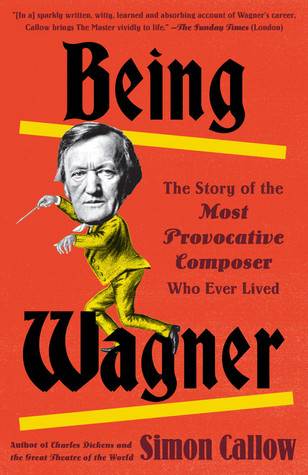
Being Wagner
The Story of the Most Provocative Composer Who Ever Lived
کتاب های مرتبط
- اطلاعات
- نقد و بررسی
- دیدگاه کاربران
نقد و بررسی

December 1, 2017
A brief life of the composer who "got under people's skin."Actor, writer, and musician Callow (Orson Welles: One-Man Band, 2016, etc.) takes a break from his ongoing, multivolume biography of Welles to pen this compact and witty biography of the idiosyncratic German composer Richard Wagner (1813-1883). Its genesis began in 2012 when Callow performed his one-man show, Inside Wagner's Head, for the composer's bicentenary. He now "aims to give a sense of what it was like to be near that demanding, tempestuous, haughty, playful, prodigiously productive figure." The "lazy and willful" young Wagner was a "bit of a problem child" and a terrible student. A talented musician, at 17 he took on the "monumental task of making a piano transcription of Beethoven's Ninth Symphony." He would conduct the piece some 17 years later. At 28, he had written four operas, but he had no prospects nor money. He finally got some of his work produced, and he was appointed Royal Conductor in Dresden. Wagner felt The Flying Dutchman ("nobody understood it") was his first piece of "real music" that he had written from his "unconscious mind." Tannhauser and Lohengrin "were the end of a road," and he set out to write the artwork "of the future." In 1850 he wrote a pamphlet, Judaism in Music. Callow argues that it shows him moving from his "casual anti-Semitism typical of the time into a fixed intellectual position...Germanness," which made him Hitler's favorite composer. He became more involved in a revolutionary politics and read Schopenhauer as he began work on Tristan and Isolde and The Ring of the Nibelung, which was performed in 1876, along with Parsifal in 1882, in the theater Wagner had built in Bayreuth, Germany."Dangerous and dynamic," Callow's Wagner is a "musical genius," but he "cannot bring comfort. Which is why people fight over him." An infectiously readable biography.
COPYRIGHT(2017) Kirkus Reviews, ALL RIGHTS RESERVED.

January 1, 2018
Richard Wagner (1813-83) is often considered one of the five greatest composers who changed music forever. Actor, director, and biographer (Orson Welles) Callow focuses here on the composer's life, not his music. He charts Wagner's struggles for recognition to final triumph, detailing the poverty that dogged him for years, until young Ludwig II of Bavaria took the composer under his wing. Also covered are Wagner's amorous escapades culminating in his second marriage, to Cosima, daughter of composer Franz Liszt. Callow traces Wagner's close then acrimonious relations with such contemporaries as philosopher Friedrich Nietzsche and French composer Giacomo Meyerbeer. He also delves into Wagner's blatant anti-Semitism. Calling Wagner a "turbulent, troubled ... loathing mess of instincts and impulses," he concludes that his subject would have been "locked up" if he were "anything other than a musical genius." Callow's easily readable prose succeeds in bringing his subject to life. An extensive chronology and list of works is also included. An interesting novelization of Hitler's relation to Wagner's daughter-in-law Winifred is A.N. Wilson's Winnie and Wolf; a definitive study of Wagner's monumental Ring Cycle is Roger Scruton's The Ring of Truth. VERDICT This engaging book is highly recommended to anyone with at least a passing interest in Wagner, his times, and his music.--Edward B. Cone, New York
Copyright 2018 Library Journal, LLC Used with permission.

January 1, 2018
Born of research conducted for Inside Wagner's Head, a one-man show Callow wrote and performed in London in 2013, Being Wagner is an accessible, if modest, biography of the composer/provocateur, focusingunderstandably, given Callow's theatrical backgroundon the drama swirling around Wagner's explosive private and public lives, the newly minted German Confederation, and the epoch-making music dramas the composer preposterously succeeded in staging throughout his long career. It would be entirely inappropriate for me to attempt musical analysis, Callow admits at the outset, but that's still a loss for any reader seeking the theoretical underpinnings of Wagner's mesmerizing scores. Still, the narrative moves along briskly enough, and all the landmarks, including Wagner's infamous anti-Semitism, which would find purchase in Hitler's Third Reich, are covered.(Reprinted with permission of Booklist, copyright 2018, American Library Association.)

























دیدگاه کاربران